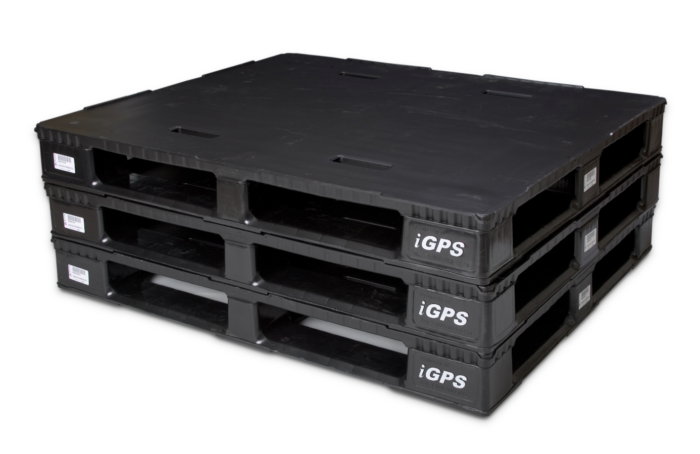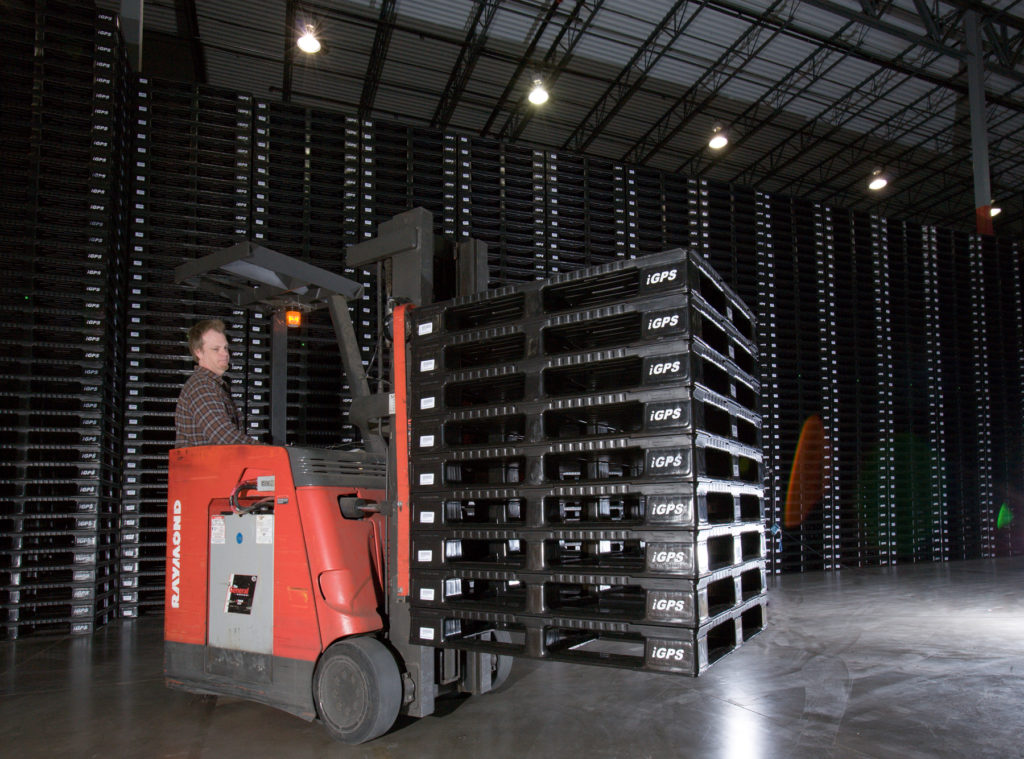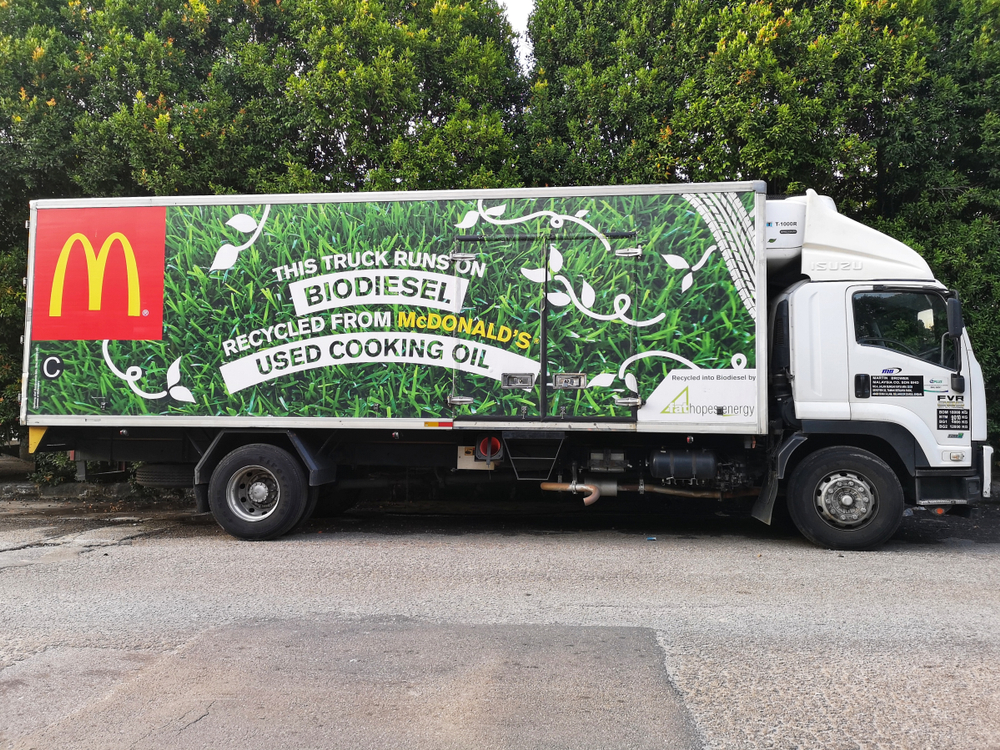Eco-friendly pallets are increasingly attracting interest for their ability to reduce a company’s impact on the environment. Limiting carbon emissions and other harmful effects on the environment isn’t just an ethical concern, it can also impact a company’s bottom line. The right eco-friendly pallets support circular business models that allow companies to eliminate waste and make maximum use of all their available resources in order to lower their total cost of business (TCOB).
In some cases, the method of obtaining pallets may offer even greater environmental benefits than the pallets themselves. Pallet pooling services, which rent pallets, rather than selling them outright, can limit unnecessary waste and reduce a company’s carbon footprint. It’s important to evaluate both pallet types and pallet providers to find the right platform to support your company’s green initiatives.
Types of Eco-Friendly Pallets and Their Benefits and Drawbacks 
The term “eco-friendly” can mean a lot of things, but at its simplest, it refers to something that does no harm to the environment. When applied to pallets, it typically refers to one of three types:
| Type | Pros | Cons |
| HDPE Plastic | HDPE plastic is one of the most easily recyclable plastic polymers and HDPE pallets can be recycled almost indefinitely. Plastic pallets are very durable and have longer lifespans than other organic material-based pallets, like wood. They are lightweight, which reduces load weight and thus limits fuel consumption and carbon emissions.They do not contribute to deforestation. |
When thrown out instead of being recycled, HDPE plastic takes around a century to degrade. Purchase of plastic pallets can be a more costly option due to their longer lifespan and durability. It may be difficult to purchase these types of pallets in bulk, as they’re more complicated to make than wood pallets. |
| Recycled and reconditioned wood pallets | Recycled lumber is dryer than new wood, which makes these pallets more durable. They can be easily repaired by replacing boards. They are typically easy to source, as many companies offer them. |
Reconditioned wood pallets tend to be heavy. They contribute to deforestation and have a short useful lifespan. They cannot be recycled in the same way as a plastic pallet and are instead used to make mulch or may be taken to a landfill. Reconditioned and recycled pallets vary in quality and aren’t consistent in weight or number of boards. |
| Corrugated paper pallets | Like plastic pallets, corrugated paper pallets are very lightweight, which reduces truckload weight and saves on fuel and carbon emissions. They are a very low-cost pallet option. Corrugated pallets are hygienic as they are typically only designed for a single use. |
Corrugated pallets may not be suitable for use with heavy products. They must be frequently replaced as they are not typically designed for multiple use. Corrugated paper pallets should not be used in situations where they might encounter moisture. |
A pallet pooling model can boost the effectiveness of any eco-friendly pallet program.
While all three of the eco-friendly pallet types above are good options for supply chain managers looking to lower their environmental impact, only wood and plastic are suitable for pallet pooling. This is important to note, as a pallet pooling model can boost the effectiveness of any eco-friendly pallet program.
The Environmental Benefits of Pallet Pooling
 Renting, rather than owning pallets, has a number of benefits for both companies and the environment. First, pallet pooling providers typically have provisions in place to ensure their pallets are recycled once they reach the end of their lifespan. On top of that, pallet pooling companies do everything they can to extend the lives of their pallets, treating the pallets as an asset to be preserved instead of a disposable piece of equipment. This is especially true of pooled plastic pallets, which are more expensive and complicated to make than wood pallets. High-quality pooled plastic pallets are reused dozens of times during their lifespan before being reground and recycled into “new” plastic pallets.
Renting, rather than owning pallets, has a number of benefits for both companies and the environment. First, pallet pooling providers typically have provisions in place to ensure their pallets are recycled once they reach the end of their lifespan. On top of that, pallet pooling companies do everything they can to extend the lives of their pallets, treating the pallets as an asset to be preserved instead of a disposable piece of equipment. This is especially true of pooled plastic pallets, which are more expensive and complicated to make than wood pallets. High-quality pooled plastic pallets are reused dozens of times during their lifespan before being reground and recycled into “new” plastic pallets.
Pallet pooling services are real-world examples of the concept of circularity in practice. Their primary goal is to reuse materials, rather than constantly replace them. By eschewing the traditional linear supply chain model where waste is expected and by bringing broken items back into their inventory through repair and recycling, they are able to operate using a sustainable business model.
Combining eco-friendly pallets with a pallet pooling program is a surefire way to almost immediately reduce your company’s impact on the environment.
Transportation is another area where pallet pooling’s environmental benefits shine. Pallet pooling providers design their delivery routes, as well as their routes for cleaning and fixing pallets, to achieve maximum fuel efficiency. They do this by optimizing the movement of pallets through their network of customers and depots, saving individual companies hundreds of trips that would otherwise be necessary to retrieve, repair, clean, and dispose of their pallets.
Combining eco-friendly pallets with a pallet pooling program is a surefire way to almost immediately reduce your company’s impact on the environment. Using lightweight, recyclable materials like HDPE plastic along with green business models rapidly cuts down on waste as well as carbon emissions. For modern companies struggling to maintain profits while also being good corporate citizens, eco-friendly plastic pallet pooling offers an affordable way to have the best of both worlds.
Renting 100% recyclable iGPS plastic pallets supports green business practices and can lower your total cost of business. For more information, contact us at 1-800-884-0225, email a specialist at [email protected], or visit our contact page.



